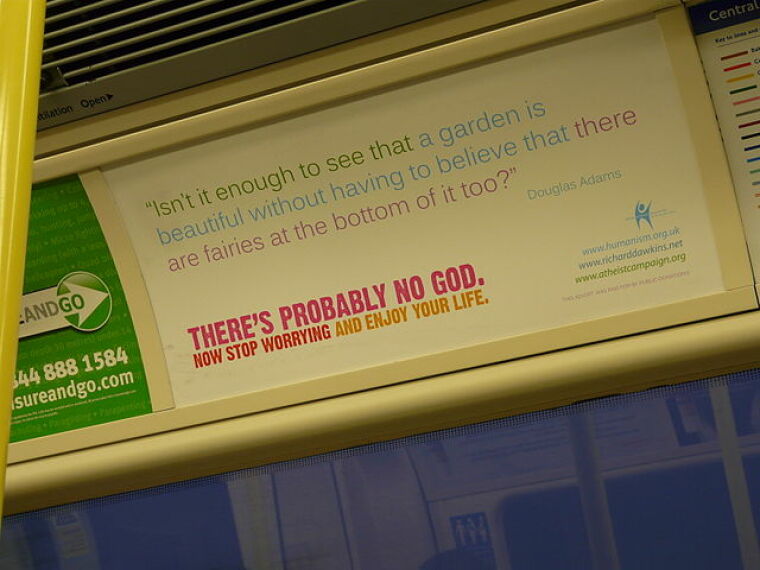Pew report: One-third of evangelicals believe people can be good without God

A majority of Americans, including a third of white evangelicals, believe that it is possible to be good without belief in God, according to a new report from Pew Research Center.
The findings, drawn from two polls conducted on June 8–18 and June 27–July 9 among 5,000 American adults, showed that 56 percent of the respondents do not think that having a religious belief is a requirement for someone to be moral and to have good values.
Among white evangelical respondents, 32 percent agreed that belief in God is not necessary to be moral, while 63 percent said the same among white mainline believers.
Black Protestants were the least likely to agree with such a view, with only 26 percent believing that faith in God is not needed. In contrast, 85 percent of the religiously unaffiliated rejected the view that faith in God is necessary to be moral.
The latest figures show a growth in the share of Americans who say belief in God is unnecessary for morality, tracking closely with the growth in the share of the population that is religiously unaffiliated.
In a 2011 Pew survey that included the question about God and morality, 18 percent of respondents identified themselves as religious "nones." By 2017, the share of nones has risen to 25 percent, according to Pew.
However, the attitudes about the necessity of belief in God for morality has also increased among those who identify with a religion.
Among all religiously affiliated adults, those who say that belief in God is unnecessary for morality rose from 42 percent in 2011 to 45 percent in 2017.
There was also a decline in the share of white evangelicals who still say that belief in God is necessary, dropping from 73 percent to 65 percent in just six years.
The findings were released on Oct. 16, ahead of the "Openly Secular Day" on Oct. 20. The event is being promoted by multiple organizations of atheists, humanists, agnostics and other secular individuals to highlight their lack of religious beliefs.
Atheists in America have launched several advertisement campaigns over the years to stress that people can live good meaningful lives without God.
"You don't need God — to hope, to care, to love, to live," said a 2011 advertisement sponsored by the Center for Inquiry (CFI) in Amherst, N.Y.
Ronald A. Lindsay, former president of CFI, has contended that it is a "myth" that nonreligious people lead "meaningless, selfish, self-centered lives."
"This is not only false, it's ridiculous. Unfortunately, all too many people accept this myth because that's what they hear about nonbelievers," he said at the time.
 Christians don't have to affirm transgenderism, but they can’t express that view at work: tribunal
Christians don't have to affirm transgenderism, but they can’t express that view at work: tribunal Archaeology discovery: Medieval Christian prayer beads found on Holy Island
Archaeology discovery: Medieval Christian prayer beads found on Holy Island Presbyterian Church in America votes to leave National Association of Evangelicals
Presbyterian Church in America votes to leave National Association of Evangelicals Over 50 killed in 'vile and satanic' attack at Nigerian church on Pentecost Sunday
Over 50 killed in 'vile and satanic' attack at Nigerian church on Pentecost Sunday Ukrainian Orthodox Church severs ties with Moscow over Patriarch Kirill's support for Putin's war
Ukrainian Orthodox Church severs ties with Moscow over Patriarch Kirill's support for Putin's war Islamic State kills 20 Nigerian Christians as revenge for US airstrike
Islamic State kills 20 Nigerian Christians as revenge for US airstrike Man who served 33 years in prison for murder leads inmates to Christ
Man who served 33 years in prison for murder leads inmates to Christ


 Nigerian student beaten to death, body burned over ‘blasphemous’ WhatsApp message
Nigerian student beaten to death, body burned over ‘blasphemous’ WhatsApp message 'A new low': World reacts after Hong Kong arrests 90-year-old Cardinal Joseph Zen
'A new low': World reacts after Hong Kong arrests 90-year-old Cardinal Joseph Zen Iran sentences Christian man to 10 years in prison for hosting house church worship gathering
Iran sentences Christian man to 10 years in prison for hosting house church worship gathering French Guyana: Pastor shot dead, church set on fire after meeting delegation of Evangelicals
French Guyana: Pastor shot dead, church set on fire after meeting delegation of Evangelicals ‘Talking Jesus’ report finds only 6% of UK adults identify as practicing Christians
‘Talking Jesus’ report finds only 6% of UK adults identify as practicing Christians Mission Eurasia ministry center blown up in Ukraine, hundreds of Bibles destroyed: 'God will provide'
Mission Eurasia ministry center blown up in Ukraine, hundreds of Bibles destroyed: 'God will provide' Church holds service for first time after ISIS desecrated it 8 years ago
Church holds service for first time after ISIS desecrated it 8 years ago Burger King apologizes for 'offensive campaign' using Jesus' words at the Last Supper
Burger King apologizes for 'offensive campaign' using Jesus' words at the Last Supper Uganda: Muslims abduct teacher, burn him inside mosque for praying in Christ’s name
Uganda: Muslims abduct teacher, burn him inside mosque for praying in Christ’s name